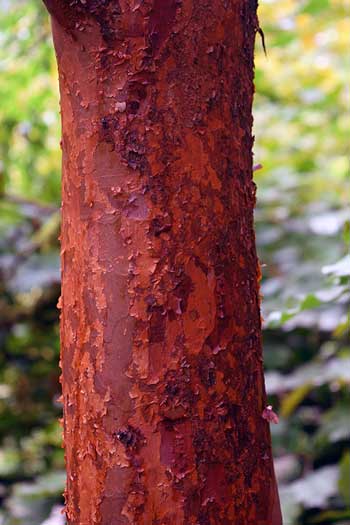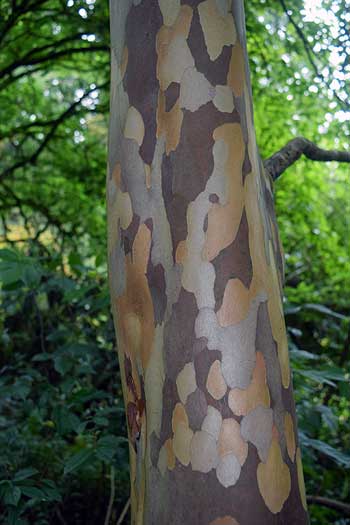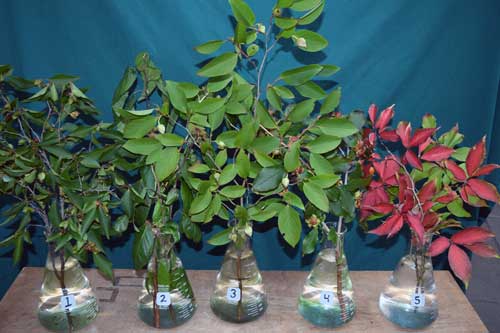The “Crown Jewels” of the Washington Park Arboretum
A tribute to our late Director, Dr. Sarah Reichard. May she forever garden in peace amongst a grove of Stewartia, her favorite tree.
[Editor’s Note: If you have time to experience their true beauty, it is highly recommended you visit our Stewartia Collection. The smart phone version of our interactive map can be used to pin-point specific locations and information for mature specimens of the species listed below.
http://depts.washington.edu/uwbg/gardens/map.html]

1) Stewartia monadelpha (Tall Stewartia)
- Small tree with an upright growth habit.
- Foliage turns an excellent maroon color in the fall.
- Bark is cinnamon-brown and smooth in maturity, scaly rich brown in younger specimens.
- Flowers are 1 to 1.5 inches wide, white with yellow stamens, and bloom over a month-long period, starting in early summer.
- Stewartia have fuzzy woody capsules for fruit (see specimen samples).
- Prefers partial shade.
- Native to Japan
2) Stewartia ovata (Mountain Stewartia)
- Large shrub with dramatic orange-to-scarlet foliage in fall.
- Large, showy white flowers have five to six crimped petals, purple to white filaments, and are 2 to 4 inches wide.
- Summer blooming
- Native to southeastern U.S.
3) Stewartia pseudocamellia var. koreana (Korean Stewartia)
- Small tree, whose dark green foliage can turn into a beautiful red to reddish-purple color in the fall.
- Flowers are large (three inches across), white with yellow stamens, and bloom sporadically over the entire summer.
- The bark is flaky with the color ranging from grayish-brown to orange-brown, is often mottled, and very attractive.
- Native to Korea

4) Stewartia rostrata
- Rare Stewartia from China
- White fragrant flowers with gold stamens and maroon bracts
- Reddish-purple fall color
5) Stewartia sinensis (Chinese Stewartia)
- This tree is the smallest of the Asian Stewartia spp.
- The flowers are four inches across in June to July.
- The bronzy new growth turns green all summer, then to the most brilliant, glowing red in fall.
